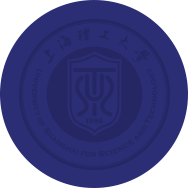Recently, 10 courses in USST, including 3 offline courses, 3 online and offline hybrid courses, 2 virtual simulation experimental teaching courses and 2 social practice courses, have been selected as the first-class undergraduate courses for Shanghai’s institutions of higher education in 2021.
Features of the alleged courses
After several rounds of teaching reform, “Power Electronic Technology”, a multidisciplinary applied course in electric power, has achieved the “ability-based” orientation of curriculum construction, characterized by such features as “being new in contents, great in challenge, quick in updating, and strong in engineering.”

Based on the construction of the Yangtze Triangle Integrated Development Demonstration Zone, “Project Management” is a course that satisfies the urgent strategic demand for project management talents, and improve students’ comprehensive quality in terms of value shaping, systematic thinking, integration and innovation, engineering ethics and sustainable development.

As a specialized fundamental course for English majors, “Integrated English” aims to cultivate inter-disciplinary talents through the teaching reform of “the organic combination of English language education and humanistic education”, including language and culture, literature and life, social life as well as philosophy and civilization.

As the core course of the mechanical engineering majors, “Machinery Equipment Structure Design”, integrates the current development of the relevant industry into the reconstruction of the course system to perfect the process assessment system with its focus on the cultivation of students’ ability to analyze and solve complex engineering problems.

Based on the university’s talent training objectives of cultivating “engineering-oriented, innovative and internationalized” talents, “An Introduction to Mao Zedong Thought and Socialist Theoretical System with Chinese Characteristics” focuses on knowledge teaching and values guidance, highlighting the educational function.

Naturally integrating into it the moral elements, “Academic English Listening and Speaking” is a course which cultivates the advanced ability of science and engineering students to complete academic communication and presentation in English and stimulates their interest and sense of innovation in learning academic English.

The “Virtual Simulation Experiment on the Operation Regulation of Centralized Air Conditioning System in Smart Buildings,” whose experimental system offers free access to PC and mobile terminals, employs virtual simulation technology to establish the primary digital twin model of centralized air conditioning system in the actual construction of smart buildings, which to some extent helps students learn knowledge with their fragmented time slots.

“Structure Design of X-Ray Machines and Virtual Simulation Experiments on Gastrointestinal Imaging Check” is a course good for students to intuitively learn medical clinical equipment manipulation and positional imitation, fully understand the principles of internal drive mechanical structure, experience the occurrence of dangerous accidents and their prevention, fully embodying the principles of simulation experiments by the Ministry of Education of PRC, namely “combining the virtual conditions with the real, complementing the virtual conditions with the real, and demonstrating the real as long as it is possible.”

“An Introduction to Industrial Engineering” has established a “problem-oriented” practice mode of in-depth integration of education through the interaction approach between the university and enterprises, forming a practice course system characterized by “solid professional foundation and advanced management idea”, which demonstrates the system of continuous improvement, system integration and man-centered thinking of industrial engineering.

In the process of implementing the national strategy of “the Belt and Road Initiative”, the course of “Engineering Geology Practice”, which offers visits to geological museums and construction sites, allows students to experience the methods of writing engineering geology reports and the steps of drawing engineering geology maps.


 Home
·
News & Events
·
Content
Home
·
News & Events
·
Content

